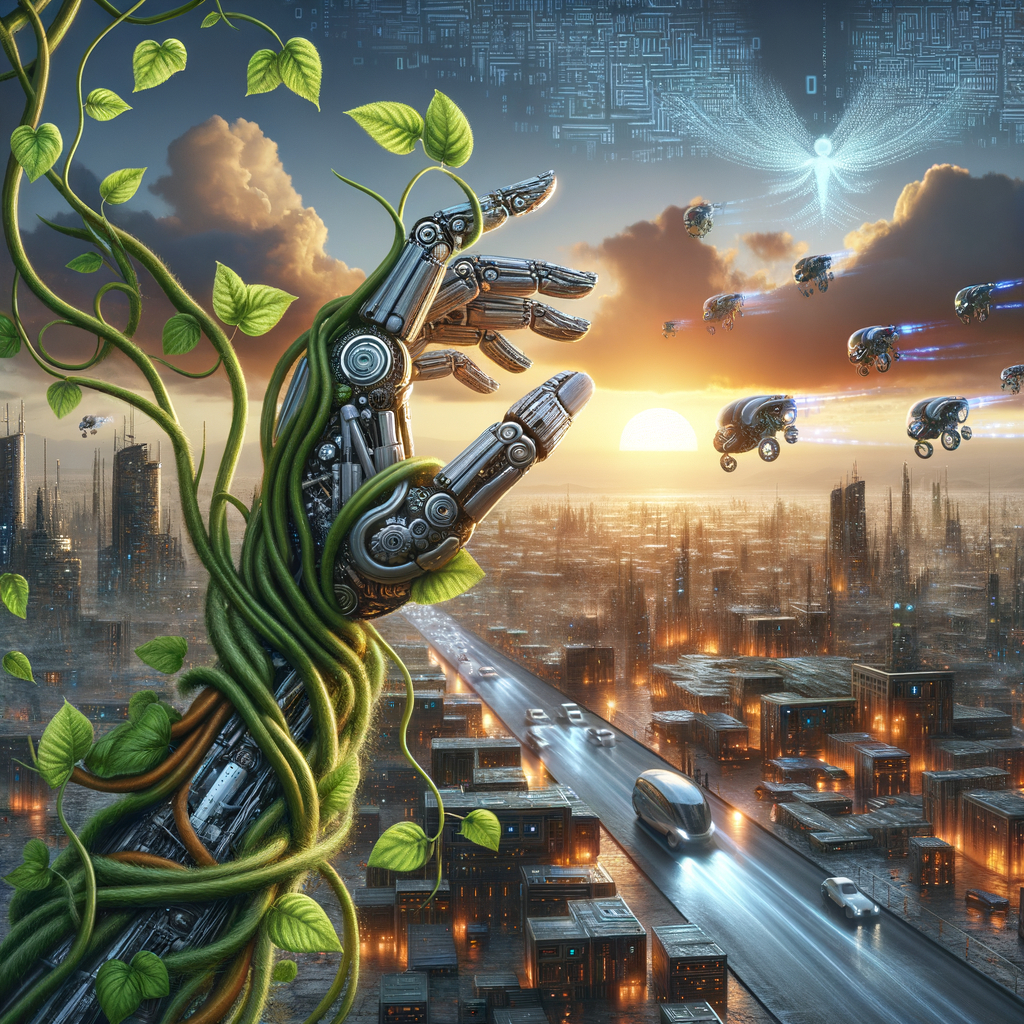Physical Address
304 North Cardinal St.
Dorchester Center, MA 02124
Physical Address
304 North Cardinal St.
Dorchester Center, MA 02124

Artificial Intelligence (AI) is rapidly transforming the world around us. From autonomous vehicles to voice-activated personal assistants, AI’s influence is pervasive and growing. This article will explore the rise of artificial intelligence, its implications for various sectors, and how it affects our daily lives.
Artificial Intelligence refers to the capability of a machine or software to mimic human intelligence. The concept has been around since antiquity, with myths and stories about artificial beings endowed with intelligence or consciousness by master craftsmen. However, it was only in the mid-20th century that AI became a formal academic discipline.
In 1956, John McCarthy coined the term “Artificial Intelligence” at a conference at Dartmouth College. Since then, we have seen significant advancements in this field due to increased computational power, improved algorithms and large amounts of data.
Today, AI has penetrated various sectors including healthcare, transportation, finance and more. In healthcare, AI algorithms are used to predict diseases like cancer earlier than traditional methods allowing for more effective treatment plans. In transportation, self-driving cars use AI algorithms to navigate traffic safely and efficiently.
“AI is not just another technology – it is a fundamental shift in how we perceive computing.”
In healthcare sector, machine learning models can analyse vast amounts of health data to predict patient outcomes or suggest treatments. For example, Google’s DeepMind Health project is currently working on an algorithm that can spot early signs of eye disease using retinal scans.
In finance sector, robo-advisors are becoming increasingly common. These digital platforms provide automated, algorithm-driven financial planning services with little to no human supervision. They can analyse a customer’s financial situation and goals, and then recommend investments based on these factors.
The transportation sector is also experiencing significant transformations due to AI. Autonomous vehicles use AI algorithms to navigate through traffic, adjust speed, change lanes, and even park the car. This technology has the potential to reduce accidents caused by human error and increase fuel efficiency.
AI’s influence extends beyond industries; it impacts our daily lives as well. From virtual assistants like Siri and Alexa that help us manage our schedules, to recommendation systems on Netflix or Amazon that suggest what we might like based on our previous choices, AI is subtly shaping our decisions and experiences.
Furthermore, AI has the potential to revolutionise education through personalised learning. AI-powered educational software can adapt to a student’s individual learning pace and offer customised instruction based on their strengths and weaknesses.
However, along with its numerous benefits, the rise of AI also brings certain challenges such as job displacement due to automation, privacy concerns related to data collection and usage, and ethical dilemmas around decision-making by machines.
The rise of artificial intelligence signifies a new era in technology – an era where machines can learn from experience, understand complex concepts, solve problems that humans find challenging, interact naturally with people and even exhibit creativity in some cases.
As we move forward into this exciting yet uncertain future shaped by AI, it will be crucial for us as a society to navigate its implications responsibly. We need to ensure that we harness the power of this transformative technology in a way that benefits all of humanity while mitigating its potential risks and challenges.